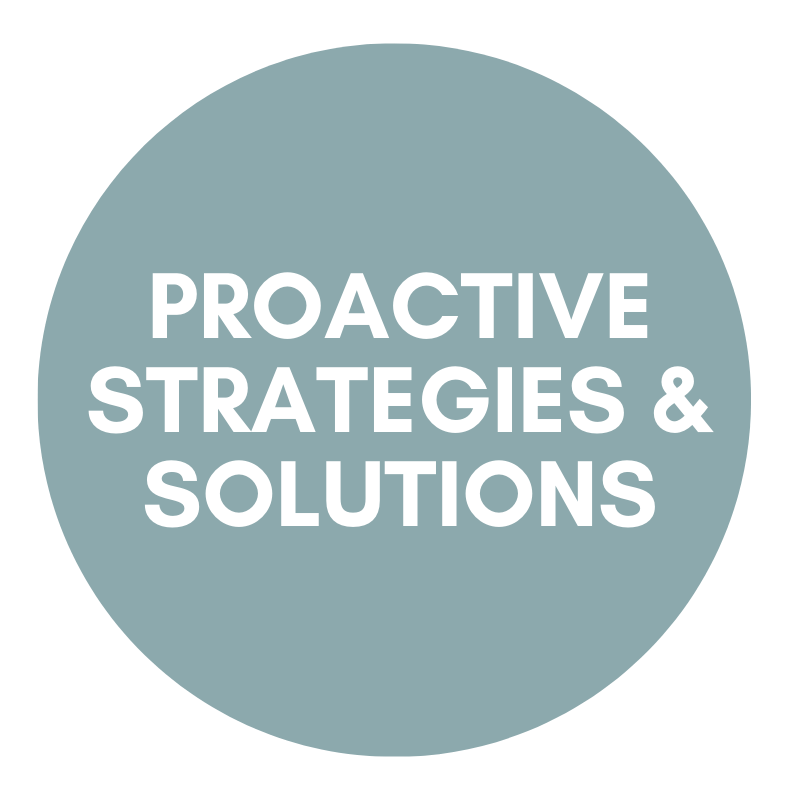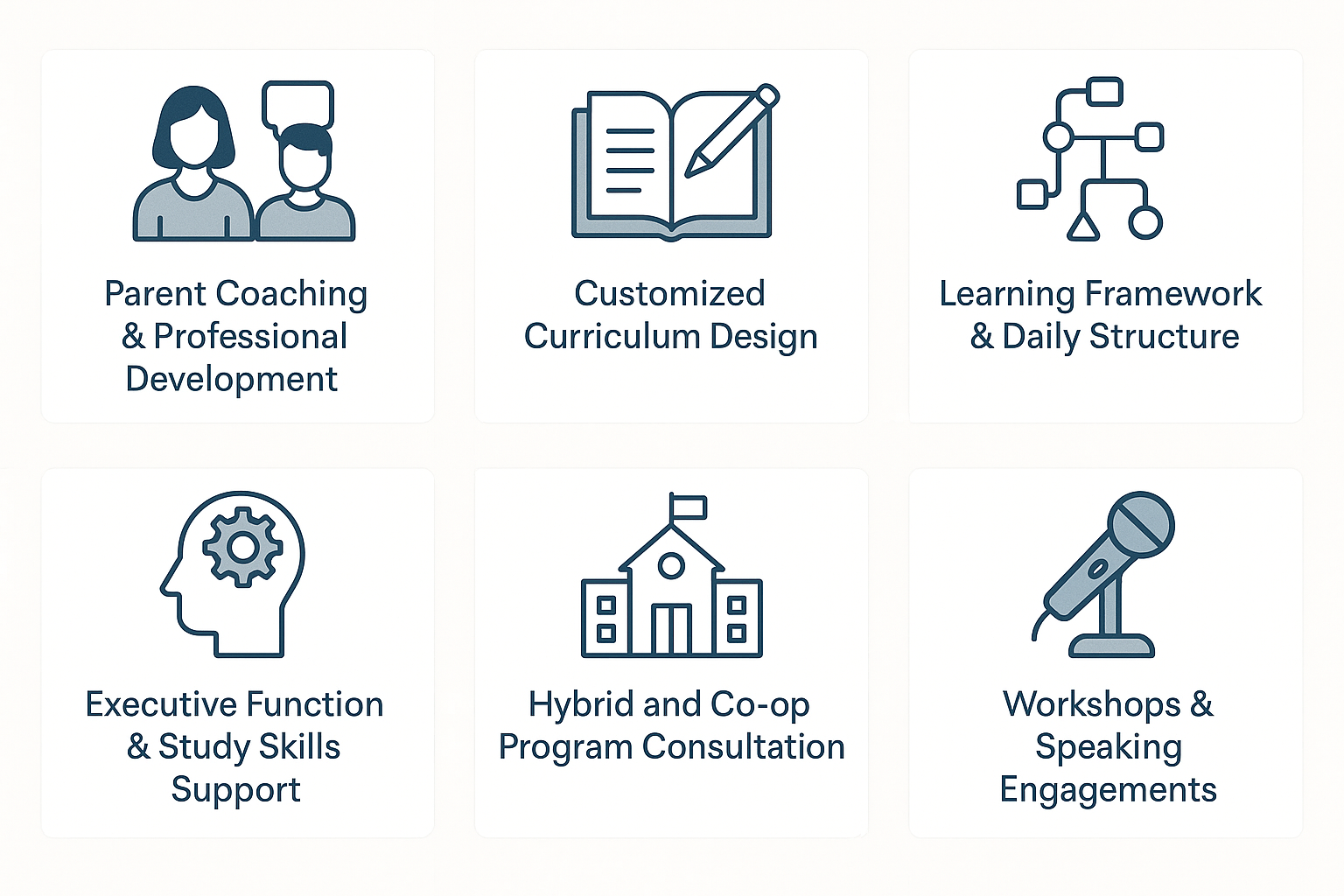
Home Schooling & Unschooling Support Services
We help homeschool & unschool parents and co-op leaders design purposeful, engaging, and rigorous home education programs.
Our services combine evidence-informed instructional strategies with practical, real-world tools that make home learning both effective and enjoyable.
Our Approach
We believe home education should be:
Structured, yet flexible – grounded in best practices but adaptable to your learners.
Engaging and hands-on – focused on thinking, creating, and doing.
Inclusive and responsive – designed for both neurodivergent and neurotypical learners.
Empowering for parents – turning you into a confident, effective teacher-coach.
Homeschooling & Unschooling Support Services
FAQs
What’s the difference between homeschool, home education, and home learning?
Answer: While these terms are often used interchangeably, there are subtle differences. Homeschool usually refers to the legal and logistical framework of educating a child outside a traditional school. Home education emphasizes the broader philosophy and long-term goals of learning at home. Home learning focuses on the daily practices — the lessons, exploration, and skill development that happen within the home or community. Together, they describe a flexible and holistic approach to helping children grow academically and personally.
How can parent-led education foster independent learning?
Answer: Parent-led education gives children structure, guidance, and encouragement to take ownership of their learning. As parents model curiosity and responsibility, students gradually shift from guided to independent learning. This transition teaches self-management, critical thinking, and motivation — skills essential for lifelong learning success.
Why is alternative education growing so quickly?
Answer: Families are increasingly drawn to alternative education because it allows for customized curriculum and flexible schooling options. Instead of fitting into a one-size-fits-all system, parents can design programs that reflect their child’s pace, interests, and goals — leading to stronger engagement and deeper learning outcomes.
What does a customized curriculum look like in home education?
Answer: A customized curriculum blends core academic standards with a child’s unique interests and learning styles. Parents might combine textbooks, online courses, project-based learning, and cross-curricular learning experiences to meet both state requirements and the child’s curiosity. The result is a program that’s both rigorous and personally meaningful.
What is individualized instruction and why does it matter?
Answer: Individualized instruction means tailoring lessons to each child’s readiness, learning style, and interests. It’s one of the key advantages of home education. Instead of teaching to the average, parents can adjust the pace, depth, and delivery of each subject — helping every student succeed without unnecessary stress or gaps.
How do project-based and cross-curricular learning enhance home education?
Answer: Project-based learning and cross-curricular learning work hand in hand to make home education engaging and meaningful. In project-based learning, students dive deeply into real-world problems — researching, experimenting, creating, and presenting their findings (such as building a model city). In cross-curricular learning, each project connects multiple subjects around a shared theme (such as building a model city to include estimating, calculating, geometry, and budgeting. These integrated approaches help students see how academic skills work together in real life, fostering problem-solving, creativity, and lasting understanding — key hallmarks of high-quality education.
How does hybrid-blended learning work for some students?
Answer: Hybrid -blended learning combines online coursework, in-person tutoring, and community-based experiences. A student might take math online, join a co-op class for science labs, and study literature independently at home. This mix gives families flexibility and access to expert instruction while keeping the benefits of home education.
What are co-op classes and how do they support social development?
Answer: Co-op classes are small group learning experiences led by parents or local instructors. They provide social interaction, collaboration, and access to specialized subjects like art, foreign language, or robotics. Co-ops balance family-centered learning with a sense of community, giving students peer connections while maintaining home-based flexibility.
How can families stay confident in their teaching role?
Answer: Families build confidence by actively pursuing professional development—mastering effective instructional strategies, refining assessment techniques, and designing truly individualized rigorous instruction. Through ongoing training and collaboration with other home educators and professionals, families strengthen both their expertise and their ability to deliver a high-quality education with purpose and assurance.


